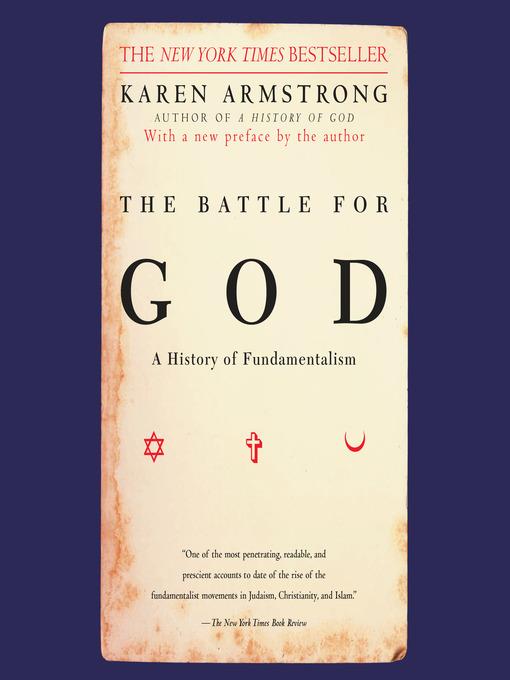
The Battle for God
A History of Fundamentalism
کتاب های مرتبط
- اطلاعات
- نقد و بررسی
- دیدگاه کاربران
نقد و بررسی

Religious fundamentalism has been a force through much of monotheistic history and has not been confined to Christianity. These are the main points of Karen Armstrong's latest work. Armstrong's reading style makes you wish you had had her for your college history courses. Her voice is clear, and she defines terms clearly and at the appropriate times. Fundamentalism, or militant piety, as she calls it in the opening chapter, is an unreasoned reaction to what fundamentalists see as secular modernity usurping their religious heritage. It has happened many times in Judaism, Christianity and Islam. She examines each at several points in history. Another of her works, A HISTORY OF GOD: The 4,000-Year Quest of Judaism, Christianity and Islam, is equally interesting but a little harder to follow on tape because of its detailed historical references. R.C.G. (c) AudioFile 2000, Portland, Maine

March 6, 2000
Former nun and A History of God iconoclast Armstrong delves deeply once again into the often violent histories of Judaism, Christianity and Islam, this time exploring the rise of fundamentalist enclaves in all three religions. Armstrong begins her story in an unexpected, though brilliant, fashion, examining how the three faiths coped with the tumultuous changes wrought by Spain's late-15th-century reconquista. She then profiles fundamentalism, which she views as a mostly 20th-century response to the "painful transformation" of modernity. Armstrong traces the birth of fundamentalism among early 20th-century religious Zionists in Israel, biblically literalist American Protestants and Iranian Shiites wary of Westernization. Armstrong sensitively recognizes one of fundamentalism's great ironies: though they ostensibly seek to restore a displaced, mythical spiritual foundation, fundamentalists often re-establish that foundation using profoundly secular, pseudo-scientific means ("creation science" is a prime example). Armstrong is a masterful writer, whose rich knowledge of all three Western traditions informs the entire book, allowing fresh insights and comparisons. Her savvy thesis about modernization, however, could be improved by some attention to gender issues among fundamentalists. The book is also occasionally marred by a condescending tone; Armstrong attacks easy Protestant targets such as Jim and Tammy Faye Bakker and Jimmy Swaggart (whose name she misspells) and claims that fundamentalists of all stripes have "distorted" and "perverted" their faiths. Despite its underlying polemic, this study of modernity's embattled casualties is a worthy and provocative read.

























دیدگاه کاربران